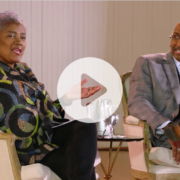Black Lives Matter: 5 Tips For Holding Better Conversations on Racial Justice
Our series of monthly actions invite Common Grounders to bring light, not heat, to the work of leading progress on America’s most pressing issues. This month: commit to holding a conversation on the importance of making progress toward racial justice.

June 2020 Action: Hold a Conversation on Racial Justice
In this watershed moment for modern civil rights, support for the Black Lives Matter movement has reached new levels and opened up an opportunity for lasting change. Achieving such change will require many engaged citizens – especially white allies – to boldly acknowledge the need for progress, and bring light not heat to the national exploration of a common path forward.
This month, commit to taking action by holding at least one conversation about racial justice with a friend, neighbor or family member. Much of the work of holding a productive discussion happens before we start talking. Here are five quick tips to help prepare you for a better conversation.
1.) Get comfortable with being uncomfortable
Our country’s painful history of racial injustice and varying world views we all bring to the table can make conversations on race emotionally fraught. Fear of “saying something wrong” also dissuades many from engaging in conversations on race. Be prepared for moments of discomfort, and stay committed to the importance of continuing to talk about the issues.
2.) Prepare by doing your own work.
We all bring personal experiences and opinions to conversations on race. Take some time to reflect and identify your own biases, and how your assumptions have been shaped by education and personal experiences. Explore, too, how these experiences may vary for people of color. Get started with the Race and Ethnicity series from our partner, Living Room Conversations.
3.) Reframe your end goal.
One essential key to holding a more productive conversation? Let go of the end goal of winning an argument. Instead, focus on making progress toward solutions. Seek areas of common ground using a “let’s work it out” attitude.
4.) Listen to understand.
Each person brings unique concerns, hopes and fears to conversations on race. Some may fear the police; others may fear defunding the police. Some may be focused on social justice; others on law and order. Active listening to understand motivations and intentions – and to show that you hear and acknowledge those concerns – is the first step to create an opportunity for solutions to be considered.
5.) Seek common ground, but don’t compromise principles.
Be prepared to be flexible in your conversations and work to find an approach that addresses the concerns of all parties. But don’t feel obligated to go along with something that violates your principles. Finding common ground isn’t about “being nice” or losing values. It’s about holding conversations that lead to understanding.












